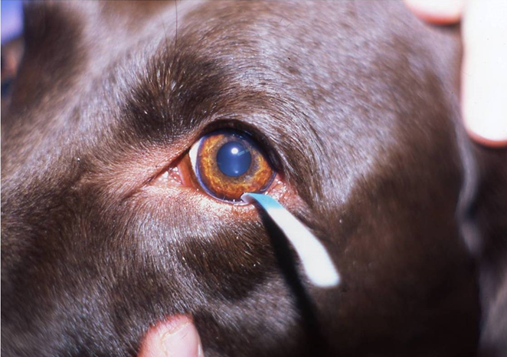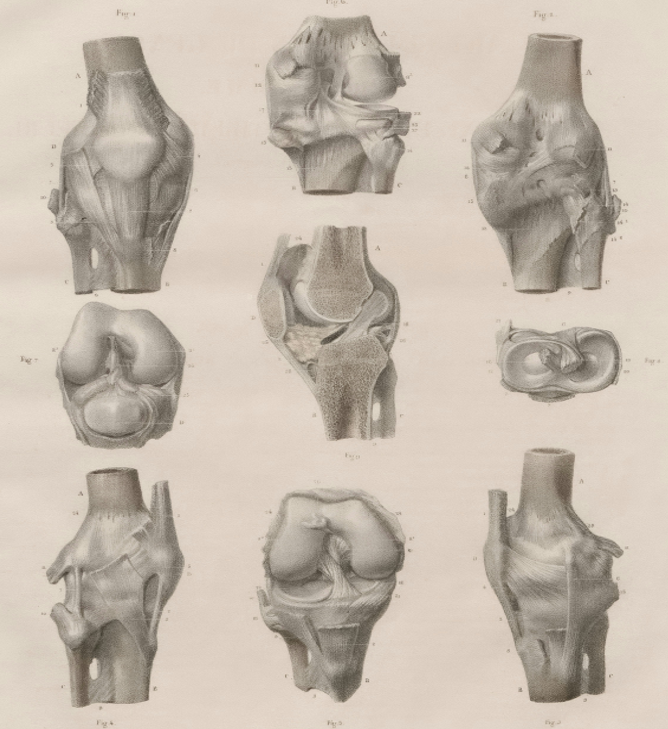Dry eye (KCS, Keratoconjunctivitis Sicca)
Keratoconjunctivitis Sicca (KCS) is a condition where your dog’s eyes don't produce enough tears, leading to discomfort and potential damage.
Raw Bone Ingestion
Raw bones should not be fed to dogs. While many dogs can partially digest raw bones, ingestion can still lead to GI upset (including bloody diarrhea), pancreatitis from fatty marrow, dental fractures, pain from bone fragments, and, less commonly, intestinal obstruction or injury.
Embedded Toenails in Cats
If your cat is limping or avoiding the litterbox, it could be an embedded nail. Especially common in older cats or those with reduced mobility. Learn more here.
Hemoabdomen: Abdominal Bleeding in Dogs
Hemoabdomen is a serious condition that requires immediate veterinary attention. Learn more about this condition, the breeds most commonly affected, and what to watch for!
Arthritis: What is Causing the Pain?
Arthritis is a common yet often overlooked condition affecting dogs, especially as they age. It’s crucial to understand what’s happening inside your dog’s joints and how various factors like age, injury, and genetics contribute to the pain.
Vestibular Disease
Vestibular disease affects a pet’s balance system, making them appear dizzy or “drunk.” Pets may tilt their head, stumble, lean, or fall because the inner ear and brain are not sending the right signals to keep the body upright.
Cataracts in dogs and cats
A cataract is an opacity (cloudiness) of the lens of the eye that prevents light from passing through normally. This can range from a small spot that doesn’t affect vision to complete lens opacity that causes blindness.
Constipation, Canine
The infrequent, difficult, or painful passage of stool. Dogs may strain, pass small or hard stools, or sometimes be unable to pass any stool at all. Severe cases can lead to obstipation, which is a complete blockage, or secondary problems like loss of appetite and abdominal discomfort.
Constipation, Feline
Constipation is a common issue in cats—especially as they get older or if they have underlying diseases such as kidney disease or obesity.
Signs include small or absent stools, repeated straining, vomiting, or loss of appetite. Learn more.
Feline Asthma
Feline Asthma is an inflammatory disorder of the lower airways triggered by allergens such as dust, cigarette smoke, mold, pollens, cat litter dust, and household chemicals. It can result in breathing difficulties and can become an emergency.
Reverse Sneezing in Dogs and Cats
Reverse sneezing is a common, often harmless condition in dogs and cats, but it can look alarming to pet owners. Learn what it is, what causes it, and when to seek veterinary care.
Glaucoma in Dogs
Glaucoma is a painful eye condition caused by increased pressure inside the eye. If untreated, it can quickly damage the optic nerve, leading to permanent blindness—sometimes in just hours to days. Learn more about it here.
“Dropped Jaw” AKA Trigeminal Neuritis
If your pet suddenly has a “dropped jaw,” struggles to eat, or loses muscle around the face, they may be dealing with a condition called trigeminal neuropathy—a rare nerve disorder that affects jaw movement and facial sensation.
While the appearance can be alarming, many pets recover well with supportive care. Learn what to watch for and when to seek help.
Heartworm Disease in Dogs
Heartworm disease is dangerous—but it’s also completely preventable. Monthly preventives and yearly testing are the best way to keep your dog safe from this mosquito-transmitted parasite.
Anxiety in Dogs
Dogs suffer from anxiety, just like humans. Read along to determine some of the common signs of anxiety, along with some ideas on how your vet can help your pet.
Causes of Sudden Blindness
Sudden blindness can have multiple causes— some related to the eye itself, versus others related to overall health. See the common causes of blindness here.
Mammary Masses in Female Dogs and Cats
Mammary masses are fairly common in dogs/ cats that are intact or have been spayed later in life. Learn more about this situation.
Aural Hematomas
Aural hematomas are common in dogs with floppy ears, ear infections, allergies and more. Various treatment options exist— and should be performed with your veterinarian. Read to learn more.
Canine Parvovirus
Canine Parvovirus is a highly contagious and potentially fatal virus, which can affect puppies and unvaccinated dogs. If suspected, aggressive treatment is recommended. Prevention is key! Read along to learn more.
Heatstroke
Warm weather can be enjoyable, but it also increases the risk of heatstroke in pets. Dogs do not sweat like people and rely on panting to stay cool, making them more vulnerable in high temperatures. Learn more about heatstroke here.




















